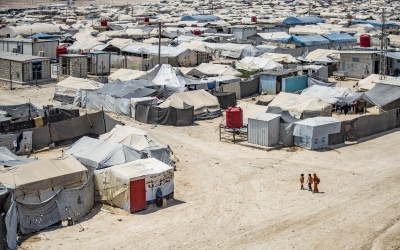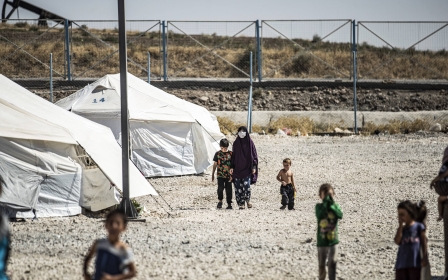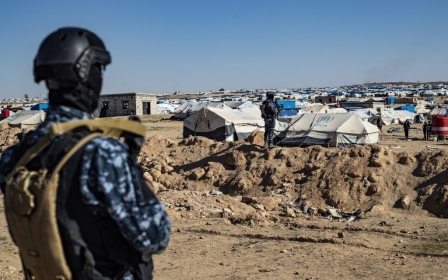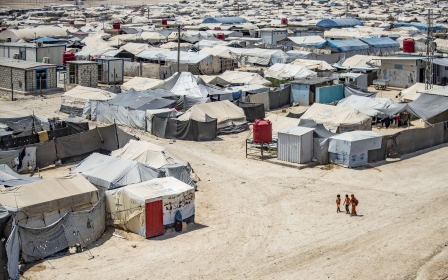Syria: Germany and Denmark repatriate women and children from al-Roj camp
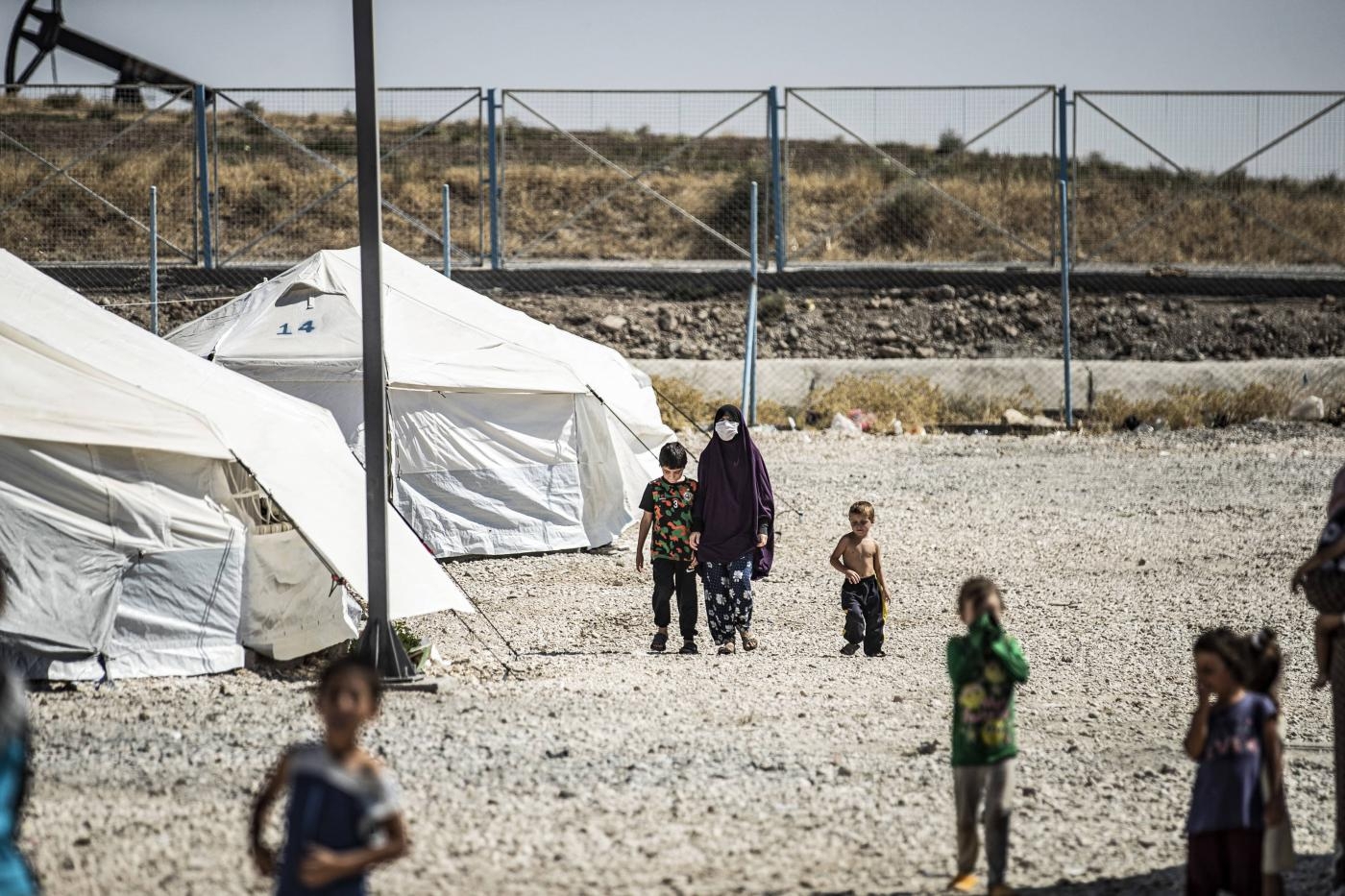
Germany and Denmark have repatriated 11 women who joined the Islamic State (IS) group and their 37 children, from northern Syria, in the biggest such transfer since 2019, Berlin said.
"The children are not responsible for their situation... the mothers will have to answer for their acts," German Minister of Foreign Affairs Heiko Maas said in a statement.
Germany brought home eight women and 23 children, while Denmark repatriated three women and 14 children as part of the same operation, which was carried out with US military support, the statement added.
The group was repatriated from al-Roj camp in Kurdish-controlled northeastern Syria, AFP reported.
German federal prosecutors said three of the women were arrested on arrival at Frankfurt airport, charged with membership of a terror organisation and for neglecting the care and upbringing of their children.
Separately, Danish authorities said they had arrested three of the repatriated women, charging them with "promotion of terrorist activities", as well as "entry and residence in a conflict zone".
"Upon arrival in Denmark the mothers were arrested and preliminarily charged," presiding police inspector Tenna Wilbert said. "Now an investigation and legal proceedings await."
Depending on the outcome of the investigation, prosecutors will decide whether to confirm formal charges, paving the way to a trial.
The women, all three of whom are Danish citizens, will be questioned before a judge on Thursday. Prosecutors will argue they should be kept in custody, Reuters reported.
Denmark is still looking at repatriating another five children born to parents who are still in Syria, but the mothers concerned have been stripped of their Danish nationalities and have not agreed for their children to return without them.
"It might be necessary to evacuate more children from Syria, but no more parents," Danish Prime Minister Mette Frederiksen told journalists on Thursday.
'Need protection'
Maas said he was "happy" to have brought back to Germany people, especially children, identified "as being in particular need of protection".
"They are mostly sick children or those with a guardian in Germany, as well as their brothers and sisters and their mothers," the German foreign ministry said.
The UK charity Save the Children called for the the repatriation process to continue.
"We welcome the news that the Danish and German governments have taken 37 children out of the miserable conditions they had been living in," said the group's Syria response director Sonia Khush.
"Children in the camps face harsh conditions, with limited freedom of movement, inadequate basic services including water and education, and an ever-present risk of violence."
She also urged Denmark to revisit its decision to strip mothers of their nationality while seeking to bring the children back to Europe.
"Mothers should not have to choose between staying with their children in camps with such harsh humanitarian conditions and letting go of them where they would have to live on their own," she said.
US military plane
Roj is the smaller of two such camps in Kurdish-controlled Syria, where many foreign women and children are now held. Al-Hol, the main detention camp, also in the northeast of the country, is home to more than 60,000 people.
German daily Bild reported that foreign ministry and police officials landed in the region early on Wednesday on a US military plane, which then brought the group to Kuwait before they boarded a flight to Frankfurt.
The women are aged between 30 and 38 and come from several regions around Germany, Der Spiegel reported.
Countries have been wrangling over how to treat captives linked to IS since the group's fall in March 2019. Most European countries carry out repatriations on a case-by-case basis.
Germany's last joint repatriation, alongside Finland in December 2020, brought back five women and 18 children.
Middle East Eye delivers independent and unrivalled coverage and analysis of the Middle East, North Africa and beyond. To learn more about republishing this content and the associated fees, please fill out this form. More about MEE can be found here.


